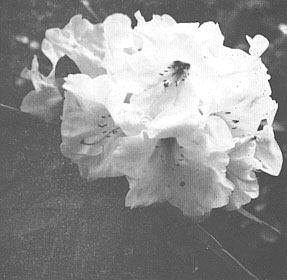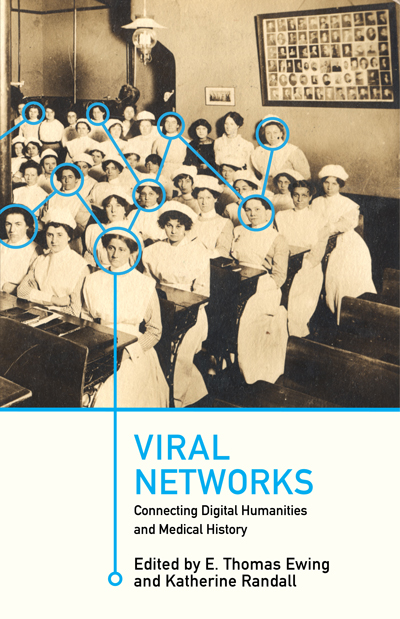QBARS - v17n4 Rudolph Henny, Editor of the Quarterly Bulletin and His Influence Upon the American Rhododendron Society
Rudolph Henny, Editor of the Quarterly Bulletin
and His Influence upon the A.R.S.
Ruth M. Hansen, Portland, Ore.

|
|
Fig. 33. 'Wink' received a P.A. in 1860.
It is 'Loderi' x 'Mrs. Mary Ashley'. |
From the first rhododendron meeting, July 1944, Rudolph Henny remained the same quiet, retiring and modest individual throughout the years. At no time did he ever make a show of his knowledge or pretend to be an authority, yet his quiet manner and influence was felt by all who came in contact with him. Though he was one of the original founders of the A.R.S., and a charter member it was not until January of 1949 that I really became acquainted with him. Until that time he had been just a far-off star, a member of that exclusive cult known as a hybridizer. As my association with Mr. Henny grew, I came to know him quite well and found in him one of the most remarkable people I have ever had the good fortune to know.
He became editor of the Quarterly Bulletin in the latter part of 1947 and with his first publication, the January 1948 issue, he changed the original format from a two-paged mimeographed edition to one with 30 pages including nursery advertising. As the years went on the Bulletin developed into its present size. He spent countless hours working on material for the Bulletin and 'at one time told me that for each issue he wrote at least 50 to 60 letters in an effort to obtain enough copy, During the years from 1948 to 1957 he not only compiled each Bulletin but proofed it as well besides spending at least one entire day at the printers going over the material so that it would be just right-all this without one cent of recompense. After June 1957 he was paid the same salary as that of the Secretary, $50.00 per month. Later it was increased to the present rate of $75.00 per month. All articles sent to him in longhand had to be typed before submitting them to the printers. This he did himself. At one time he said, "I couldn't be hired for $3,000 a year to do this job, but here I am doing it for practically nothing."
Perhaps his one obsession was to keep the Bulletin free from becoming a "society" magazine as so many other garden publications had become; he therefore steered away from using pictures of individuals as much as possible. He strongly felt that our Bulletin should be strictly a publication on rhododendrons, not people, unless they had actually contributed something of importance to the Society. He had such a retiring nature that at no time was his picture ever printed in any A.R.S. publication and rarely had anyone ever been able to photograph him.
Mr. Henny's whole life was centered around the A.R.S. and the Quarterly Bulletin. Few committees ever functioned completely without him; or at least they consulted with him before making any final decision. His influence upon the Society helped to form its aims, concepts and policies; yet at no time was he ever outspoken, demanding or verbose. It was his nature to sit quietly at all meetings, hearing all sides of an argument; then, in his quiet manner calmly give his opinion. He hated factional disputes and attempted to avoid them at all times. He did his best to deal fairly with everyone; this extended even to articles of controversial nature which were always printed verbatim. Even though he did not agree with the author he believed that both sides of any question should be heard. He had an extremely high code of moral ethics which influenced him in all his dealings. Though, of a shy nature he had firm convictions, and whenever he was proven wrong he was big enough to admit his error.
He was proud of the A.R.S., the way it had grown from a handful of people to a society now large enough to take its rightful place among other, older plant societies. He was proud of the high quality of our publications and of the successful formation of chapters and the development of each new display or test garden. He was especially proud of the National Test Garden and regretted that it was impossible for him to help with any of the work due to the distance between his home and the garden. However, he did the next best thing in helping to publicize it through articles in the Bulletin. He attempted to have at least one on the Test Garden each year.
As chairman of the Editorial Committee he always wished that more people would write descriptive articles on gardens and include their cultural practices. He felt that all our members were interested in reading about and seeing pictures of other member's gardens.
Mr. Henny always worked on the rating committee and when the information for "Rhododendrons For Your Garden" was being compiled he was most reluctant to have high ratings put on any of his hybrids. His contention was that it would be best for Time to be the Judge, that it would be far better in the future to have to raise the rating of a plant than to lower it. Therefore, most of his hybrids listed in that book have only average ratings; though we know many are below what they deserve, but as Rudolph said, "Time will be the test." That sums up his philosophy, "moderation in all things."
